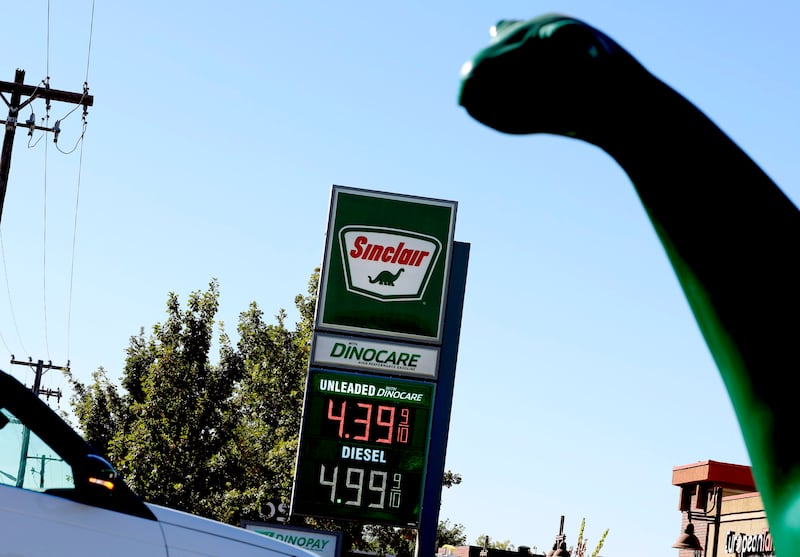U.S. gas prices were already inching up before OPEC and its partners on Wednesday announced plans to slash daily oil production, a move the cartel says is about market stabilization but is likely to push up prices even amid upcoming seasonal declines in demand.
But some believe the move may backfire and could push Congress to take new legislative action to create legal liabilities for those who artificially manipulate the petroleum market.
Why is OPEC+ cutting oil production now?
“OPEC+” refers to the 13 member countries of the Organization of Petroleum Exporting Countries and 11 nonaffiliated countries, of which Russia is largest based on oil reserves and GDP, according to a recent NASDAQ report.
On Wednesday, following a meeting of members in Vienna, OPEC+ announced it would cut production by 2 million barrels per day starting in November.
According to The Associated Press, the group said the decision was based on the “uncertainty that surrounds the global economic and oil market outlooks.” Saudi Energy Minister Abdulaziz bin Salman stressed the group’s stated role as a guardian of stable energy markets.
“We are here to stay as a moderating force, to bring about stability,” he told reporters.
Oil has been trading well below its summer peak of $120 per barrel, a price that drove U.S. gas prices to an all-time high of over $5 per gallon in June. Utah drivers took an even bigger hit on their commute budgets when the Beehive State hit its own all-time record of $5.26 per gallon in early July.
But national prices then saw a nearly 100-day run of declines amid rising inflation, fears of a pending recession and a global petroleum market roiled by Russia’s ongoing aggression in Ukraine.
Gas prices were already on the rise
On Thursday, AAA reported that gas prices have been headed back up amid a surge in demand, with the average price of a gallon of regular across the country up 7 cents since Monday to $3.86.
In Utah, gas prices are down from a week ago but saw a slight uptick on Thursday with the average price per gallon coming in at $4.17, according to AAA data.
According to new data from the Energy Information Administration, gas demand increased nationally from 8.83 million barrels per day to 9.47 million barrels per day last week.
And, following OPEC+’s announcement of new production restrictions, crude prices went up $1.24 to $87.76 per barrel at the close of trading on Wednesday.
Could Congress take action on OPEC market manipulation?
A bill aiming to create legal consequences for artificial oil price manipulation, the No Oil Producing and Exporting Cartels, or NOPEC, has been stalled in the U.S. Senate since earning committee approval in May and is an effort that the White House has previously signaled it would not support.
But it appears that might change in light of new restrictions from the major oil producing countries.
President Joe Biden issued a strong rebuke of the OPEC+ decision in a press release Wednesday afternoon and noted he would direct the Department of Energy to deliver another 10 million barrels from the Strategic Petroleum Reserve to the market next month. The release also hinted that Biden’s stance on NOPEC could have some wiggle room.
“In light of today’s action, the Biden administration will also consult with Congress on additional tools and authorities to reduce OPEC’s control over energy prices,” the release says.


